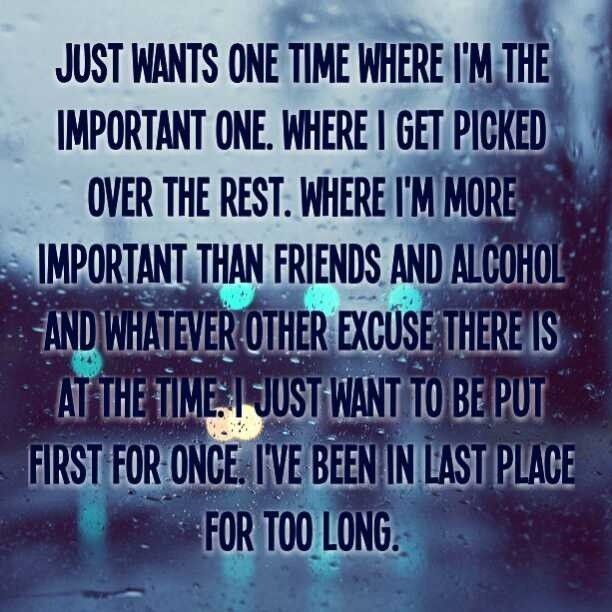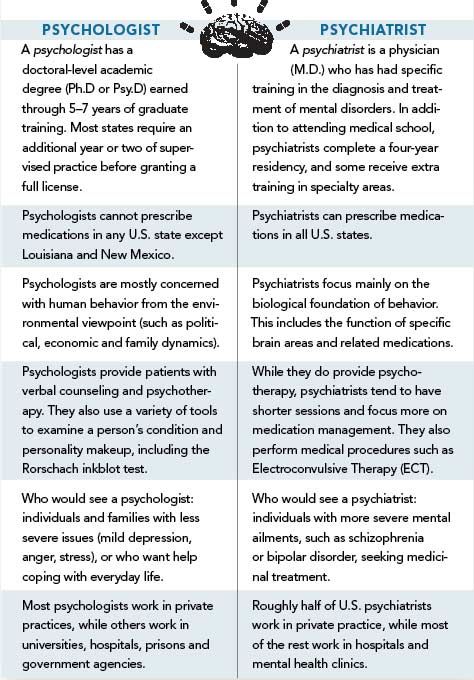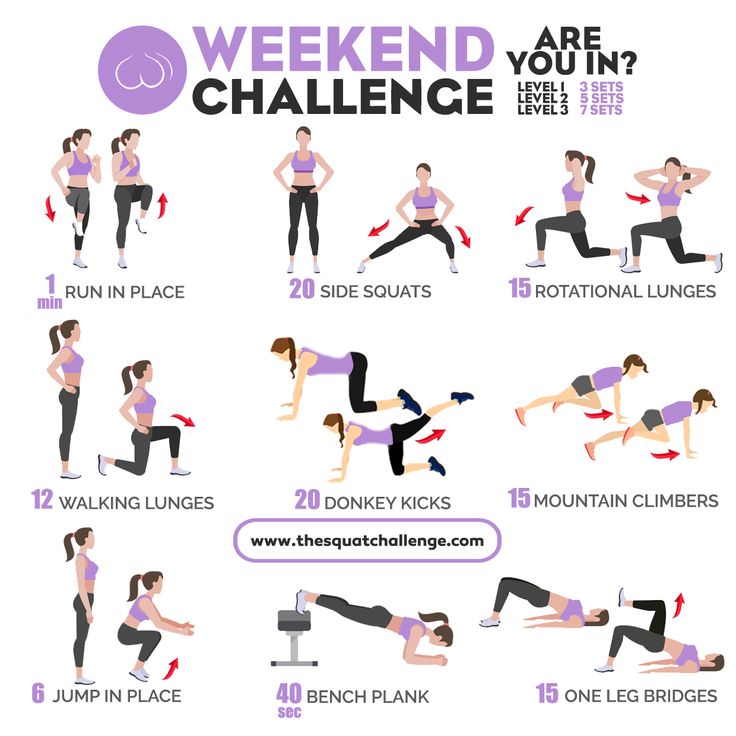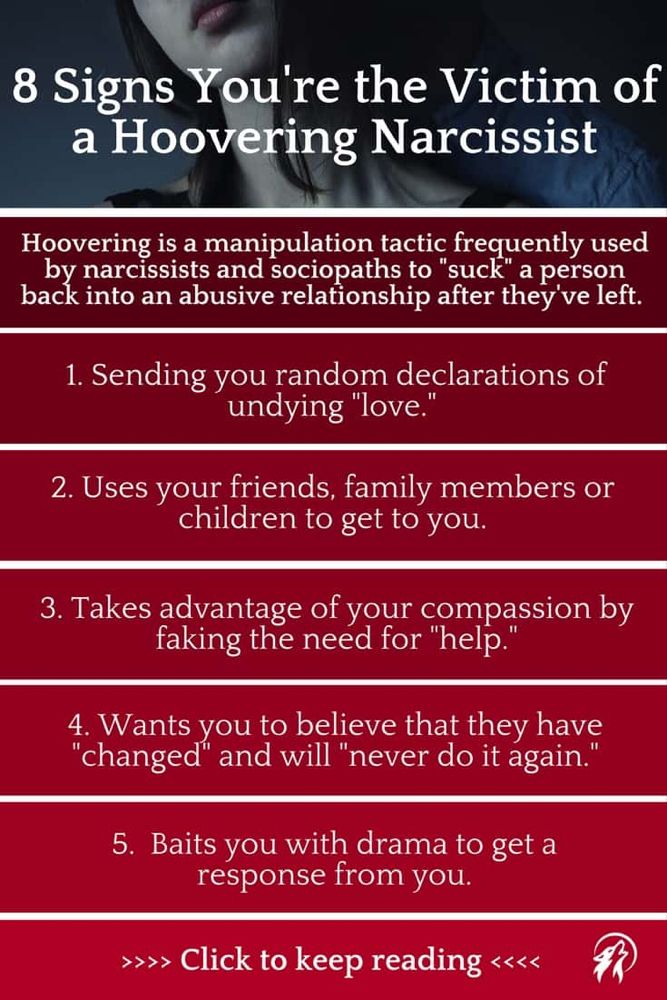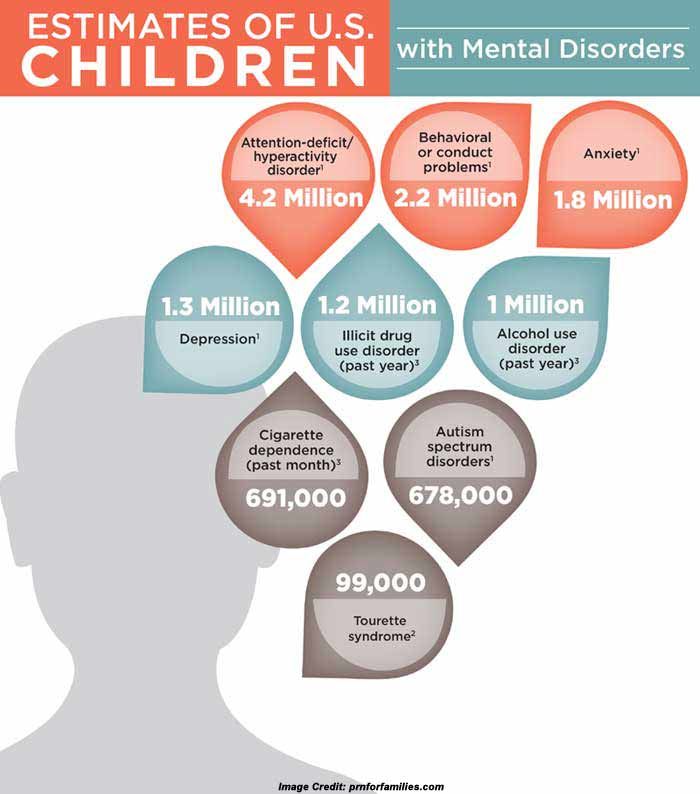Being addicted to someone
How Do You Break an Addiction to a Person?
If you find it hard to end relationships, addressing the underlying causes could help as well as understanding what addiction really is.
Maybe you know a relationship isn’t supporting your physical and emotional health but feel unable to leave it. Or you might feel like you can’t stop thinking about your partner and their needs to the point that you leave your own on the back burner.
In fact, you may think you’re addicted to that person and you may even experience love addiction withdrawal.
What you feel is real and has an explanation. But rather than addiction, some researchers refer to this experience as emotional dependence.
Love addiction or addiction to people aren’t formal mental health diagnoses.
In fact, the term “addiction” is no longer used in general. Instead, medical experts talk about substance use disorder.
But people and relationships aren’t substances, and they don’t have the same effects on you.
Although not everyone agrees, some researchers suggest you could experience symptoms similar to those of someone living with substance use disorder.
For example:
- intense cravings
- significant changes in mood, including feeling fearful or anxious
- neglecting other responsibilities and relationships
- having your life revolve around that person
- staying in the relationship even when experiencing negative consequences
- symptoms of withdrawal when apart from that person
But while emotional dependence can lead you to engage in behaviors that may mirror symptoms of substance use disorder, this isn’t the same as addiction. The causes and processes in place are different.
It isn’t possible to be addicted to a person.
In fact, the Diagnostic and Statistical Manual of Mental Disorders, 5th edition (DSM-5) doesn’t recognize any non-substance addictive behaviors because there’s limited to no evidence for it. That includes relationship and sex addiction.
Researchers also distinguish between substance addiction and “addiction” in relationships because love, unlike substance use, is a desirable experience for most people.
Still, research from 2016 suggests that because romance can stimulate the reward centers of the brain in a similar way to substances, it could lead to certain patterns that mimic what some people call addiction — or, more accurately, compulsive behavior.
Some people also live with a condition called erotomania.
Erotomania is a type of delusion that makes you believe someone is in love with you, even if there’s no evidence to support this belief. Most often, this other person is a celebrity or someone you admire.
If it feels difficult to let someone go even when you know it’s for the best, a few different factors other than addiction might be at play.
Attachment style
According to attachment theory, your attachment style — or the way you bond with others — forms through some of your earliest relationships, such as with your parents or primary caregiver.
While a secure attachment style tends to support balanced relationships, an insecure attachment style can cause more stress.
According to 2019 research, insecure attachment styles — especially anxious and avoidant types — were associated with less satisfaction in relationships.
Other research from 2015 connects anxious attachment with lower levels of trust in romantic relationships.
Understanding your attachment style can help you identify how you expect a relationship to meet your needs.
For example, if you have an anxious attachment style, you might feel like you can’t rely on your partner to consistently meet your needs, which can lead to fear of abandonment.
Fear of abandonment
Fear of abandonment can make it feel like any relationship is better than being alone. And if you feel this way, it can be harder to break off a relationship even when you know it might not be the right choice for you.
While experts believe anxious attachment plays a significant role in abandonment anxiety, there may be more to the story.
You might also fear abandonment if you:
- live with a personality disorder
- were abandoned in the past by a parent or partner
- have a history of trauma or live with post-traumatic stress disorder (PTSD)
Codependency
Some people find viewing their codependency symptoms through the lens of addiction is helpful when communicating their experience with others, even though experts don’t recognize the term as a formal condition.
In relationships, codependency is linked to:
- difficulty with authenticity
- an unclear sense of self
- people-pleasing behaviors
Research from 2018 suggests codependency could stem from early childhood experiences.
One theory is that rigid and unsupportive family environments lead to codependency when you feel that changing yourself to fit a parent’s expectations is the only way to be accepted.
These feelings can carry over into adult relationships, making it harder to maintain your sense of self and needs.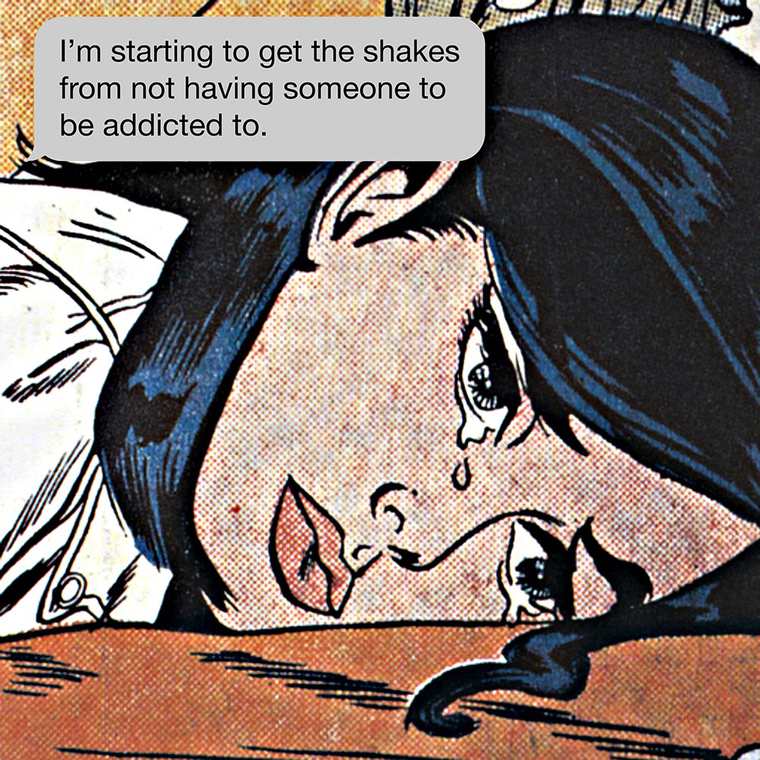
Mental health conditions
Research from 2015 suggests that what you may feel is an addiction to a person could be better explained by mental health conditions such as:
- Personality disorders. Borderline personality disorder, dependent personality disorder, and histrionic personality disorder are connected to anxious attachment styles and sensitivity to rejection.
- Anxiety disorders. If you live with an anxiety disorder, it could feed into unbalanced emotional dependence in a relationship. For example, separation anxiety can cause intense stress at the thought of being apart from a loved one.
- Bipolar disorder. Research from 2019 reports that intense romantic attachment causes symptoms of hypomania similar to hypomania that people with bipolar II disorder experience, suggesting these relationships and bipolar disorder may be activating the same regions of the brain.
Obsessive love vs. OCD
OCD
Sometimes, people refer to love as “obsessive,” which might make it easy to confuse with obsessive-compulsive disorder (OCD).
While emotional dependence can cause intrusive thoughts about the other person, it’s not the same as OCD, a formal mental health condition.
In OCD, obsessions are distressing thoughts you cannot control and might become a source of shame. They also often lead you to engage in compulsive behaviors to relieve the stress they cause you.
If you tend to become overly dependent on people or relationships, breaking them off may sound challenging. It’s natural to feel this way.
Even if that coping mechanism wasn’t supporting your well-being, losing it can take an emotional toll.
This is why it’s so common to re-engage in some relationships even after you’ve promised yourself you’ll never go back.
Learning new ways to manage difficult emotions can help you stay away from old relationship patterns for good.
Try to keep notes (or a journal)
Journaling might provide a few benefits if you’re looking to disconnect from a toxic relationship, including:
- serving as a written reminder of why you’re leaving the relationship when you feel like reconsidering
- helping you reconnect with yourself and establish a clearer vision of your own goals and dreams
- allowing you to identify and process difficult emotions
Consider reconnecting with a hobby or goal
Relationships that consume all of your energy and attention can leave you feeling like you no longer know the real “you. ”
”
If you feel disconnected from yourself, the first step might be exploring potential areas of interest or asking what goals motivate you. When you’ve found a potential answer, consider dedicating time every day to explore that hobby or work toward that goal.
Practicing somatic exercises might help
Overdependence on a partner or relationship can be a maladaptive, or unproductive, strategy for coping with difficult emotions.
Somatic therapy, which helps you tune in to your own physical and emotional responses to stress, could help you reestablish a sense of self and develop emotional regulation skills, according to 2018 research.
While somatic therapy often works best with the support of a trained therapist, you can try these four exercises at home.
Try inner child work
Acknowledging and reconnecting with your inner child could help you overcome emotional dependence in relationships, especially if past trauma has shaped how you approach relationships.
Inner child work focuses on:
- healing childhood trauma and complex PTSD
- addressing and reducing feelings of shame
- developing self-compassion
A trauma-informed therapist can guide you through the process of inner child work, but you can also practice some aspects of it on your own. Here’s how to get started.
Consider a support group
Some people report that talking with others who identify with the concept of love addiction is a significant part of healing from emotional dependence.
If you’re interested in joining a support group, you might be able to find a local group in your community.
Therapy can help
According to 2019 research, certain forms of therapy could allow you to challenge your current relationship patterns by helping you:
- confront cognitive distortions
- improve communication with yourself
- separate fantasy from reality in relationships
- develop a secure attachment style
These forms of therapy include cognitive behavioral therapy (CBT) and psychodynamic therapy.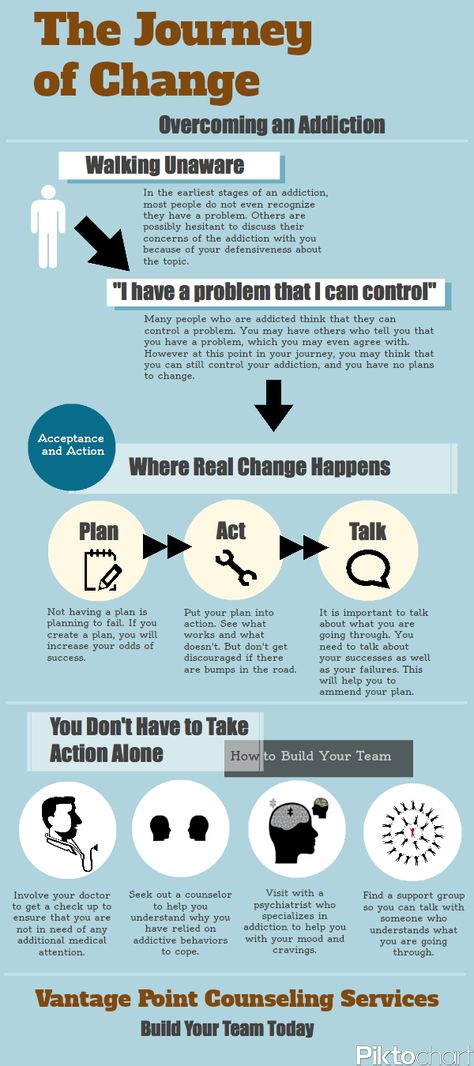
Working with a therapist may also help you reconnect with yourself if you feel out of touch with your own wants and needs.
Although addiction to a person isn’t a formal medical diagnosis, it’s possible to fall into a pattern of emotional dependence on someone.
Breaking out of this relationship pattern can be difficult and often means getting to the root of what’s causing your emotional dependence. Emotional regulation strategies, patience, and self-compassion can help you through this process.
How Do You Break an Addiction to a Person?
If you find it hard to end relationships, addressing the underlying causes could help as well as understanding what addiction really is.
Maybe you know a relationship isn’t supporting your physical and emotional health but feel unable to leave it. Or you might feel like you can’t stop thinking about your partner and their needs to the point that you leave your own on the back burner.
In fact, you may think you’re addicted to that person and you may even experience love addiction withdrawal.
What you feel is real and has an explanation. But rather than addiction, some researchers refer to this experience as emotional dependence.
Love addiction or addiction to people aren’t formal mental health diagnoses.
In fact, the term “addiction” is no longer used in general. Instead, medical experts talk about substance use disorder.
But people and relationships aren’t substances, and they don’t have the same effects on you.
Although not everyone agrees, some researchers suggest you could experience symptoms similar to those of someone living with substance use disorder.
For example:
- intense cravings
- significant changes in mood, including feeling fearful or anxious
- neglecting other responsibilities and relationships
- having your life revolve around that person
- staying in the relationship even when experiencing negative consequences
- symptoms of withdrawal when apart from that person
But while emotional dependence can lead you to engage in behaviors that may mirror symptoms of substance use disorder, this isn’t the same as addiction. The causes and processes in place are different.
The causes and processes in place are different.
It isn’t possible to be addicted to a person.
In fact, the Diagnostic and Statistical Manual of Mental Disorders, 5th edition (DSM-5) doesn’t recognize any non-substance addictive behaviors because there’s limited to no evidence for it. That includes relationship and sex addiction.
Researchers also distinguish between substance addiction and “addiction” in relationships because love, unlike substance use, is a desirable experience for most people.
Still, research from 2016 suggests that because romance can stimulate the reward centers of the brain in a similar way to substances, it could lead to certain patterns that mimic what some people call addiction — or, more accurately, compulsive behavior.
Some people also live with a condition called erotomania.
Erotomania is a type of delusion that makes you believe someone is in love with you, even if there’s no evidence to support this belief. Most often, this other person is a celebrity or someone you admire.
If it feels difficult to let someone go even when you know it’s for the best, a few different factors other than addiction might be at play.
Attachment style
According to attachment theory, your attachment style — or the way you bond with others — forms through some of your earliest relationships, such as with your parents or primary caregiver.
While a secure attachment style tends to support balanced relationships, an insecure attachment style can cause more stress.
According to 2019 research, insecure attachment styles — especially anxious and avoidant types — were associated with less satisfaction in relationships.
Other research from 2015 connects anxious attachment with lower levels of trust in romantic relationships.
Understanding your attachment style can help you identify how you expect a relationship to meet your needs.
For example, if you have an anxious attachment style, you might feel like you can’t rely on your partner to consistently meet your needs, which can lead to fear of abandonment.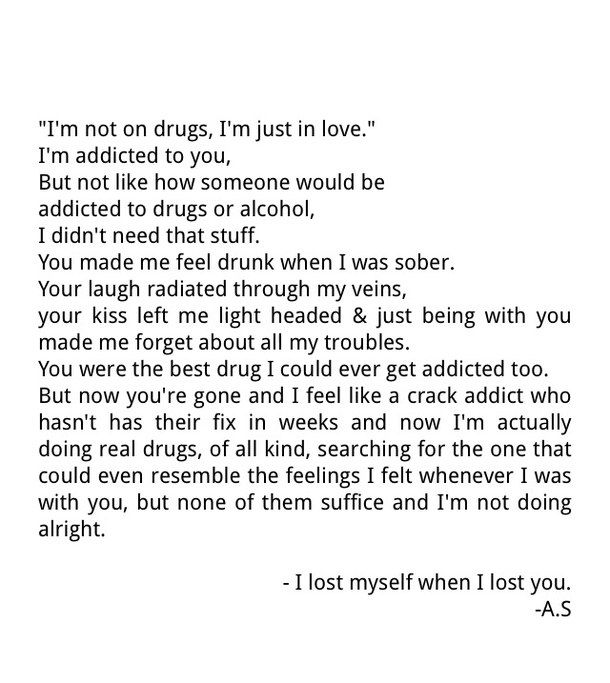
Fear of abandonment
Fear of abandonment can make it feel like any relationship is better than being alone. And if you feel this way, it can be harder to break off a relationship even when you know it might not be the right choice for you.
While experts believe anxious attachment plays a significant role in abandonment anxiety, there may be more to the story.
You might also fear abandonment if you:
- live with a personality disorder
- were abandoned in the past by a parent or partner
- have a history of trauma or live with post-traumatic stress disorder (PTSD)
Codependency
Some people find viewing their codependency symptoms through the lens of addiction is helpful when communicating their experience with others, even though experts don’t recognize the term as a formal condition.
In relationships, codependency is linked to:
- difficulty with authenticity
- an unclear sense of self
- people-pleasing behaviors
Research from 2018 suggests codependency could stem from early childhood experiences.
One theory is that rigid and unsupportive family environments lead to codependency when you feel that changing yourself to fit a parent’s expectations is the only way to be accepted.
These feelings can carry over into adult relationships, making it harder to maintain your sense of self and needs.
Mental health conditions
Research from 2015 suggests that what you may feel is an addiction to a person could be better explained by mental health conditions such as:
- Personality disorders. Borderline personality disorder, dependent personality disorder, and histrionic personality disorder are connected to anxious attachment styles and sensitivity to rejection.
- Anxiety disorders. If you live with an anxiety disorder, it could feed into unbalanced emotional dependence in a relationship. For example, separation anxiety can cause intense stress at the thought of being apart from a loved one.
- Bipolar disorder.
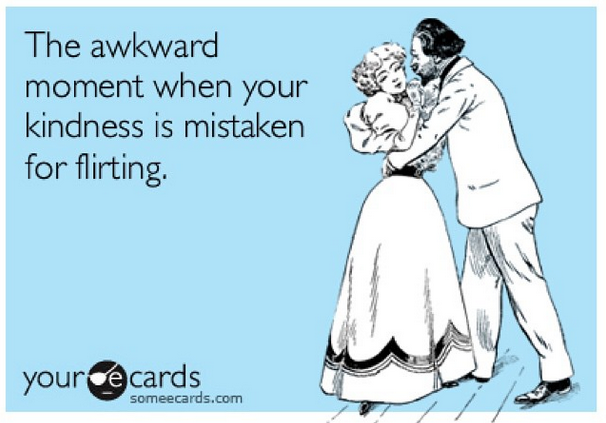 Research from 2019 reports that intense romantic attachment causes symptoms of hypomania similar to hypomania that people with bipolar II disorder experience, suggesting these relationships and bipolar disorder may be activating the same regions of the brain.
Research from 2019 reports that intense romantic attachment causes symptoms of hypomania similar to hypomania that people with bipolar II disorder experience, suggesting these relationships and bipolar disorder may be activating the same regions of the brain.
Obsessive love vs. OCD
Sometimes, people refer to love as “obsessive,” which might make it easy to confuse with obsessive-compulsive disorder (OCD).
While emotional dependence can cause intrusive thoughts about the other person, it’s not the same as OCD, a formal mental health condition.
In OCD, obsessions are distressing thoughts you cannot control and might become a source of shame. They also often lead you to engage in compulsive behaviors to relieve the stress they cause you.
If you tend to become overly dependent on people or relationships, breaking them off may sound challenging. It’s natural to feel this way.
Even if that coping mechanism wasn’t supporting your well-being, losing it can take an emotional toll.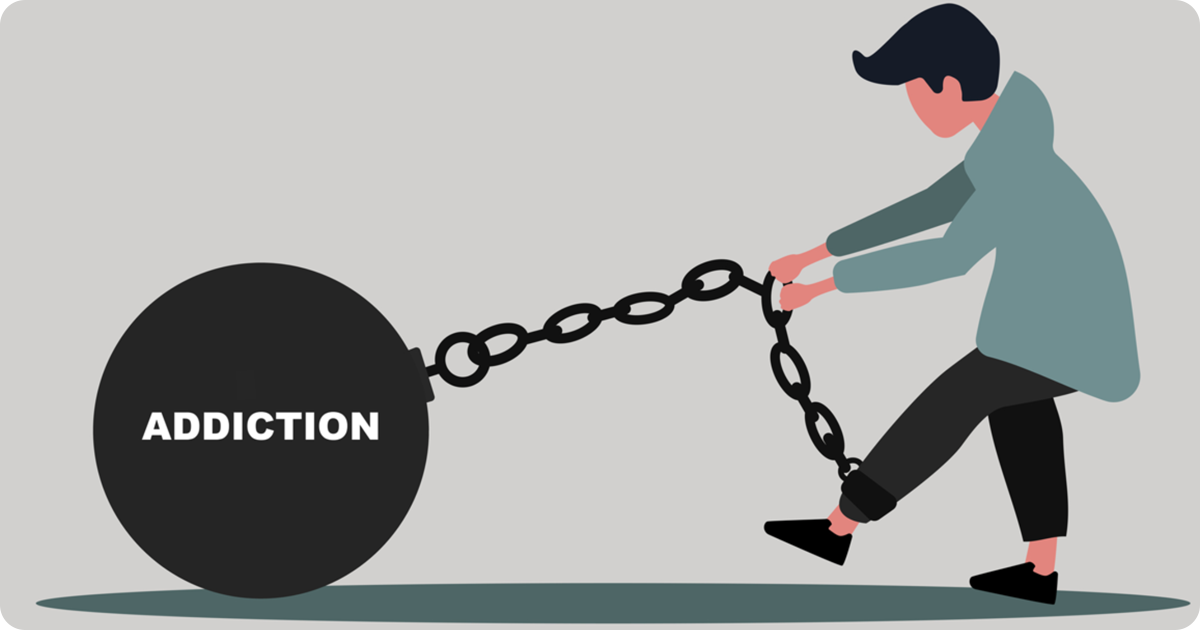
This is why it’s so common to re-engage in some relationships even after you’ve promised yourself you’ll never go back.
Learning new ways to manage difficult emotions can help you stay away from old relationship patterns for good.
Try to keep notes (or a journal)
Journaling might provide a few benefits if you’re looking to disconnect from a toxic relationship, including:
- serving as a written reminder of why you’re leaving the relationship when you feel like reconsidering
- helping you reconnect with yourself and establish a clearer vision of your own goals and dreams
- allowing you to identify and process difficult emotions
Consider reconnecting with a hobby or goal
Relationships that consume all of your energy and attention can leave you feeling like you no longer know the real “you.”
If you feel disconnected from yourself, the first step might be exploring potential areas of interest or asking what goals motivate you. When you’ve found a potential answer, consider dedicating time every day to explore that hobby or work toward that goal.
When you’ve found a potential answer, consider dedicating time every day to explore that hobby or work toward that goal.
Practicing somatic exercises might help
Overdependence on a partner or relationship can be a maladaptive, or unproductive, strategy for coping with difficult emotions.
Somatic therapy, which helps you tune in to your own physical and emotional responses to stress, could help you reestablish a sense of self and develop emotional regulation skills, according to 2018 research.
While somatic therapy often works best with the support of a trained therapist, you can try these four exercises at home.
Try inner child work
Acknowledging and reconnecting with your inner child could help you overcome emotional dependence in relationships, especially if past trauma has shaped how you approach relationships.
Inner child work focuses on:
- healing childhood trauma and complex PTSD
- addressing and reducing feelings of shame
- developing self-compassion
A trauma-informed therapist can guide you through the process of inner child work, but you can also practice some aspects of it on your own. Here’s how to get started.
Here’s how to get started.
Consider a support group
Some people report that talking with others who identify with the concept of love addiction is a significant part of healing from emotional dependence.
If you’re interested in joining a support group, you might be able to find a local group in your community.
Therapy can help
According to 2019 research, certain forms of therapy could allow you to challenge your current relationship patterns by helping you:
- confront cognitive distortions
- improve communication with yourself
- separate fantasy from reality in relationships
- develop a secure attachment style
These forms of therapy include cognitive behavioral therapy (CBT) and psychodynamic therapy.
Working with a therapist may also help you reconnect with yourself if you feel out of touch with your own wants and needs.
Although addiction to a person isn’t a formal medical diagnosis, it’s possible to fall into a pattern of emotional dependence on someone.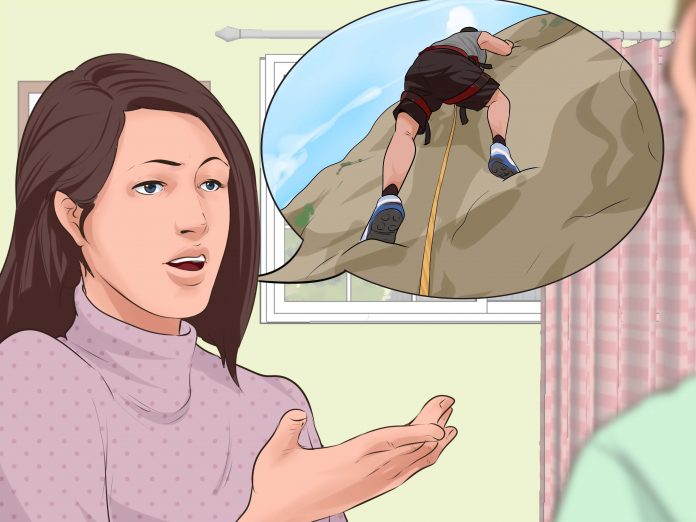
Breaking out of this relationship pattern can be difficult and often means getting to the root of what’s causing your emotional dependence. Emotional regulation strategies, patience, and self-compassion can help you through this process.
What is emotional dependence on others
Man cannot live without relationships with other members of his species. This applies not only to psychological aspects, but also to physical survival. Normally, relations between people should be based on equality and trust. But often it happens that one person begins to depend on another. We understand why this happens.
Definition of
In psychology, addiction refers to a relationship in which one person experiences a pathological attachment to another. He is ready to sacrifice himself and his interests for the sake of another and cannot imagine life without an object of affection. Such dependence is called emotional.
By and large, we are all dependent on each other - a person is considered a social being and cannot live outside society.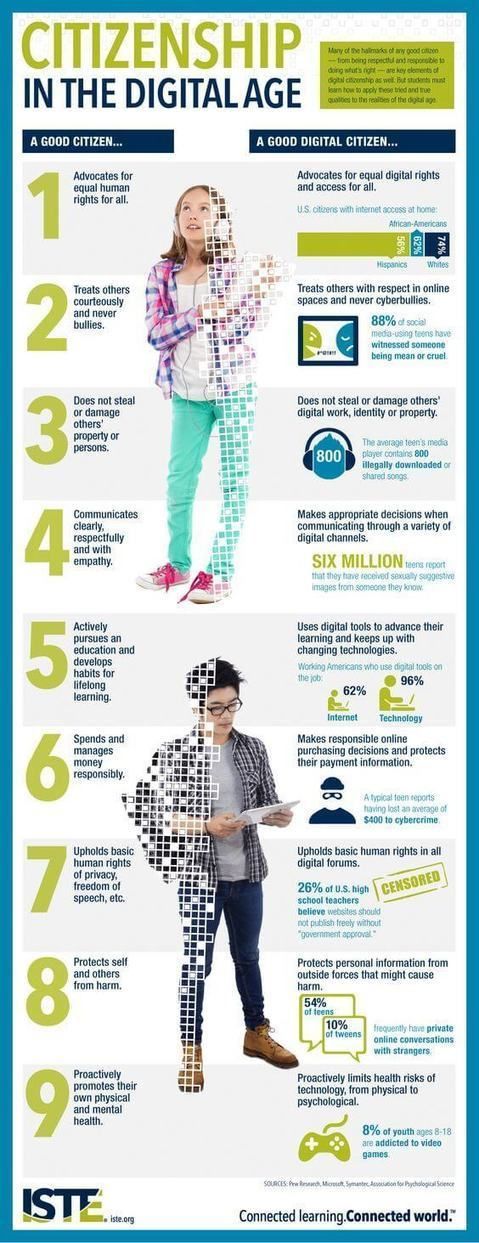 We need others for more than just utilitarian needs—food, clothing, a home, and so on. We also need them to satisfy emotional attachments and needs for love, social belonging.
We need others for more than just utilitarian needs—food, clothing, a home, and so on. We also need them to satisfy emotional attachments and needs for love, social belonging.
Who is at risk?
Normally, our relations should be built on the equal principle “you give me - I give you”. However, in reality this is not always the case. Some people literally melt into relationships and give more than they take. If these processes occur to the detriment of the giver, we are talking about emotional dependence.
What factors lead to it?
| Factor | Description |
| Character features | People who are soft and non-confrontational, who find it difficult to define and leave their boundaries, often fall into dependent relationships. It is more difficult for them to resist pressure and easier to fall for manipulation. |
| emotional immaturity | A childish attitude in adulthood leads to the fact that a person cannot understand that his good attitude is being abused, and he sacrifices himself for the sake of another. |
| Difficulties with parents | Emotional detachment, overprotection, violence (physical, emotional, sexualized), rigid demands (which leads to the need for the favor of others), alcoholism and drug addiction lead to dependence on the favor of another. |
| Misconceptions about love | Sacrifice pervades many literary works and feature films. If a person takes such a relationship as a model, this can lead to dependence on another person. |
| Self-esteem | People whose self-esteem is built on external approval often end up in dependent relationships. Also at risk are those who cannot adequately assess themselves. |
| social fears | The greatest fear of a person is not to find his place in society. It is no coincidence that earlier the most severe punishment was expulsion from the community. Man cannot survive without other people. |
A person who is in a dependent relationship does not always realize that he has fallen into a trap. As a result, he gives up himself and his needs in order to satisfy the needs of a partner. The manipulator knows which points to press in order to get the desired behavior from the victim.
A person who has problems with self-esteem and building relationships becomes a victim of dependence on communication with a person. Our psychologists will remotely help you understand if you are suffering from addiction to others, and will advise on any questions about such relationships.
What kinds of dependent relationships are there
Addiction is not always bad and wrong. For example, young children are completely dependent on their parents, and employees are completely dependent on employers. It becomes bad when the second participant in the relationship abuses trust and uses the good attitude of the victim to achieve their own goals.
There are the following types:
- Personal. This group includes such interpersonal relationships as love and friendship. Naive ideas about love and fidelity often lead to the fact that one of the participants in such a relationship begins to manipulate the other to achieve their interests. The second one refuses everything for the sake of his beloved, dissolves in him and forgets about himself.
- Child and parent. Any side of the relationship can be the initiator of pressure. More often they talk about parents who do not want to let their children go and do everything possible to tie them to themselves.
 However, the aggressor can also be a child who manipulates the feelings of relatives and forces them to follow their needs.
However, the aggressor can also be a child who manipulates the feelings of relatives and forces them to follow their needs. - Workers. This is a large group of relationships that includes not only relationships between the boss and subordinates, but also communication between employees, teacher-student relationships at school and university. In this case, a person gives up his interests for the sake of a common cause or maintaining relationships with colleagues, receiving nothing in return.
Almost always, addictive relationships are built on manipulation (“You don’t love me if you don’t do this”), blackmail (“If you don’t do this, I’ll leave”), denial of such manipulation (“This didn’t happen, you make everything up” ) and so on. Such relationships are always unhealthy. They destroy both the aggressor and the victim.
Read also Gaslighting: how loved ones manipulate us
How to understand that you depend on relationships
Dependence on a friend, colleagues, parents or loved one does not form immediately.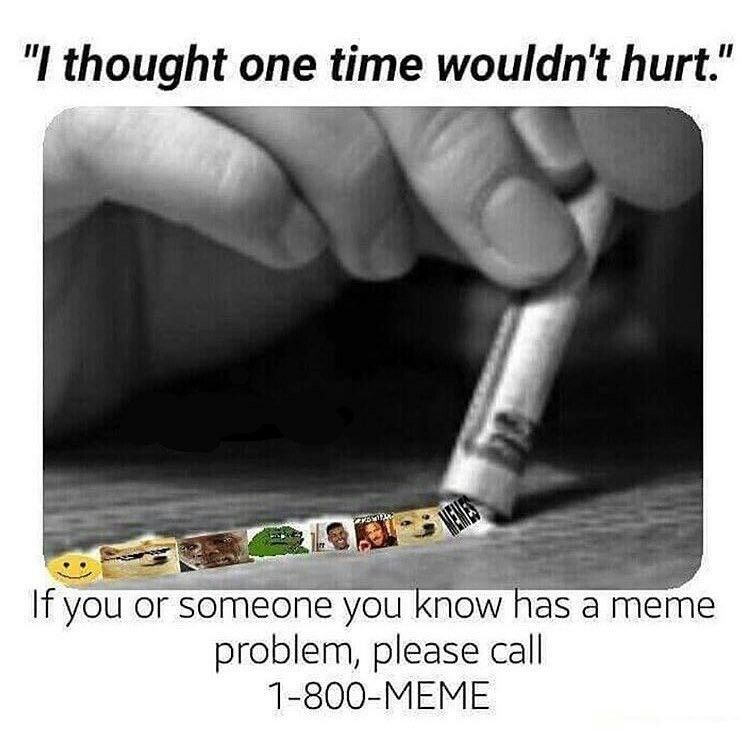 Getting used to a person happens slowly and imperceptibly. Because of this, it can be difficult to independently understand that you have fallen into traps and depend on a person. Warnings from relatives do not help either - the brain blocks information that we do not want to believe.
Getting used to a person happens slowly and imperceptibly. Because of this, it can be difficult to independently understand that you have fallen into traps and depend on a person. Warnings from relatives do not help either - the brain blocks information that we do not want to believe.
And this is quite logical: we find it difficult to believe that someone is using our good attitude to achieve their goals. Therefore, the first step should be observation - try to soberly assess your relationship with loved ones and colleagues.
The following criteria may help in the evaluation:
- You feel that you are unworthy of your partner, and they constantly tell you about it.
- You experience anxiety at the thought that this relationship may end.
- You are willing to do anything to save a relationship or a job, and sacrifice your own needs in order to serve the interests of another.
- The future seems gloomy to you, you are not confident in yourself and tomorrow.

- Your partner's approval is more important to you than your own thoughts. Your self-esteem is directly affected by what others say.
- Your achievements are constantly devalued. All comparisons are not in your favor.
- Your partner is threatening to end the relationship if you don't do what they say. They say you don't deserve any other treatment and you won't find anything better.
- You are afraid of the bad mood of a partner (employer, colleague, parents, friends). You are afraid that they will be unhappy with you and break off relations with you. Your mood depends on the other person.
In general, a feeling of insecurity, fear, dissatisfaction, lack of joy, faith in oneself and one's own strengths is one of the main signals that speak of an unhealthy relationship. The second participant often manipulates precisely these feelings, forcing you to experience more and more negative emotions.
Important! The manipulator deliberately destroys the victim's psyche with gaslighting, unpredictable behavior (alternating periods of alienation with periods of love and affection) and moral pressure. It may seem to the victim that she is going crazy and not worthy of a different attitude towards herself.
It may seem to the victim that she is going crazy and not worthy of a different attitude towards herself.
How to stop being addicted
It is not so easy to stop depending on a person, as popular bloggers and psychologists say. The victim of such a relationship is always traumatized. Added to this trauma are the actions of the partner, who convinces the victim that without him, she is nobody.
It is very difficult to get rid of such relationships without outside help. This is affected by destroyed self-esteem, and moral pressure, and character traits, so if you decide to leave such a relationship, you will need outside help - from relatives or specialists. This does not mean that it is impossible to overcome addiction. It's just a long work, which is aimed at the following:
| Steps | Decryption |
| Reconnect with yourself | A person in a dependent relationship is completely subordinate to the interests of the partner. |
| Work out personal boundaries | People with any addiction do not understand what personal boundaries are and where they lie. To determine them will help special literature for self-help or psychotherapy. |
| Make a plan and map opportunities | A person in such a relationship is sure that something is wrong with him, he is not worthy of more and better, so you should not try to change something. In reality, none of this exists. If a partner or employer says you're not going to get anywhere, just try it. Yes, it will be scary. Yes, it might not work the first time. But if you don't try, nothing will change. |
| Ask for help | In a dependent relationship, the victim gradually develops the feeling that she can do nothing, no one will help her, and in general she deserves everything that happens to her. |
In order not to break loose and not return to dependence on relationships, you need to keep a diary in which all feelings and moods are recorded. You can also write down all the pros and cons of relationships in it, so that in moments of doubt you can return to these records and remember that you are on the right track.
The manipulator almost always destroys the victim's self-esteem, so getting out of a dependent relationship can be difficult. Work with a specialist will help to finish them.
Consult a psychologist
Standard
Personal package for 24/7 communication with Russian doctors by phone
1105 ₽/month
13 256 ₽
Details
Family
Family package for 24/7 communication with Russian doctors
002 1819 ₽/month21 830 ₽
Read more
Premium
Maximum packet of unlimited round -the -clock communication with Russian doctors by phone
2555 ₽/month
30 661 ₽
more than
FAQ
What relationships are called dependent?
+
In psychology, they understand such relationships when one person is morally and emotionally in dire need of another person and sacrifices his own interests because of a good relationship with him.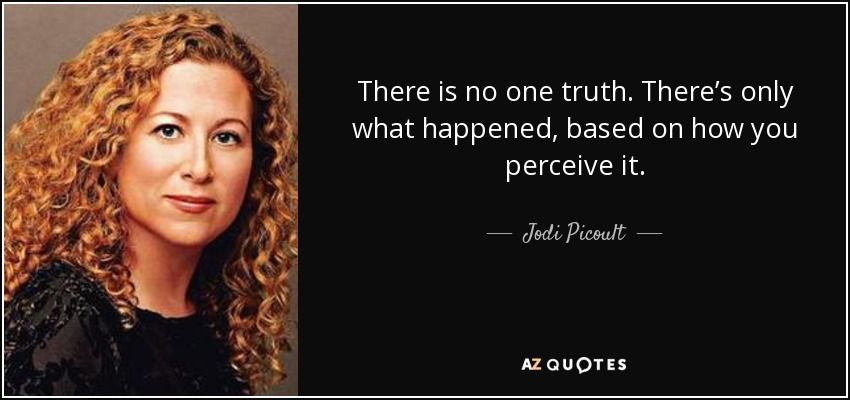
How to understand that you depend on communication with another?
+
Such dependence is indicated by the following factors: willingness to make any concessions in order to maintain relations, rejection of oneself and one's interests, constant anxiety and uncertainty, the desire to please the partner in everything.
How not to depend on the person you love?
+
To overcome addiction, you must first understand what it is. Tests, written practices, psychotherapy and close people will help with this. Finishing them on your own can be tricky.
Expert opinion
Addiction occurs when a person is afraid to be alone. This usually occurs against the background of low self-esteem, dysfunctional family relationships, softness and non-conflict. It can be difficult to get out of such a relationship and stop being addicted without outside help. Psychotherapy helps to remove negative attitudes, set personal boundaries and learn to value yourself without regard to others.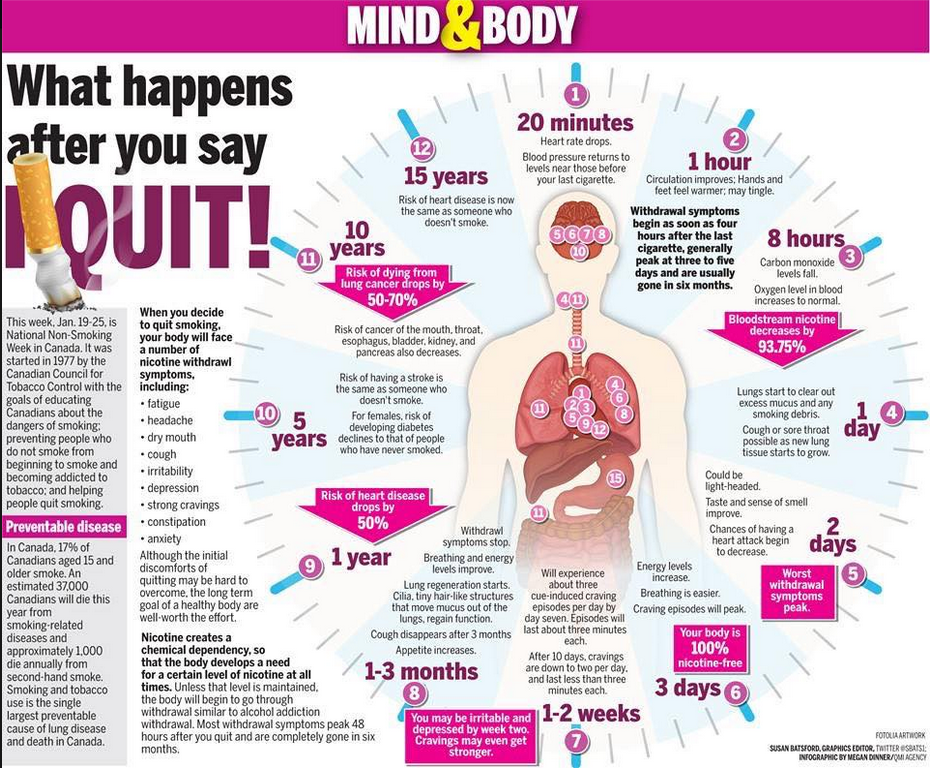
We publish only verified information
Article author
Monakhova Albina Petrovna clinical psychologist
Experience 17 years
Consultations 1439
Articles 331
Specialist in clinical psychology. Help in finding tools for self-realization, working out beliefs, fears and anxieties. Work with self-attitude, internal boundaries, understanding of interaction with society through conscious personal changes.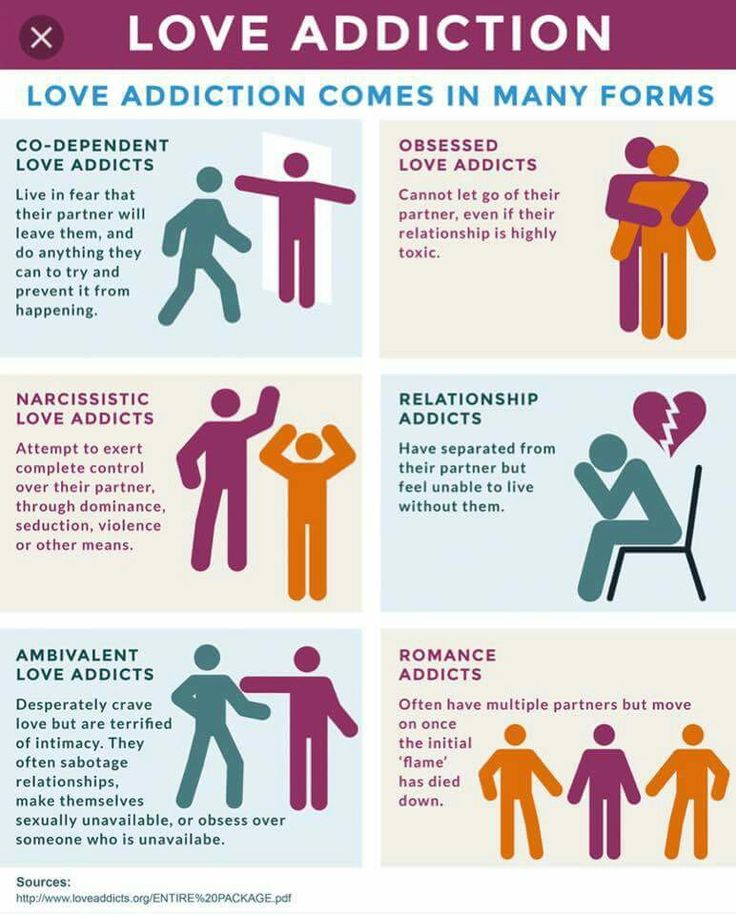
- 2007 - 2008 MUSIC Children's polyclinic No. 4 - teacher psychologist
- 2008 - 2009Healthy Country LLC - clinical psychologist
- 2009 - 2021 Republican Narcological Dispensary - psychologist
- 2012 - 2013 Occupational medicine - psychologist
- 2013 - 2015 LLC Vozrozhdenie - psychologist
- 2019 to present Teledoctor24 LLC - psychologist
What is a dependent relationship, how to recognize and how to deal with dependence on another person
Often people seek to get rid of autonomy in relationships, because it is very pleasant to correlate in plans, to feel sad, to feel closeness. But when it gains momentum, that “I can’t do without another person”, “I lose the image of myself” - that’s when the feeling of dependence on another person begins. What is dependent relationships in a couple psychoanalyst Anna Kushneruk told on the air "Breakfast. Weekend"
It is very difficult for an addicted person to talk about his desires, about his feelings, about his confidence, about his plans. Such a person builds his life around the plans of another person.
Such a person builds his life around the plans of another person.
If the other person is unhappy, then automatically I will be unhappy too. His satisfaction means my safety.
SEE ALSO: How to change your life over the summer: simple tips to improve the quality of life from a neuromanagement specialist
In a normal state, a person has many personal identities, for example: I am a doctor, I am a mother, I am a wife, and so on. A healthy person should be plural, have many different identifications. In a dependent relationship, a person ceases to have his own desires, begins to constantly please others and demand a good attitude towards himself for this.
If I do everything well, you will not have the right to be aggressive towards me. You have no right to treat me badly. I bribe you with my kind attitude.
In a dependent relationship, a person constantly shows "fictitious obedience", represses his own aggressiveness and behaves better than he would like in order not to displease his partner.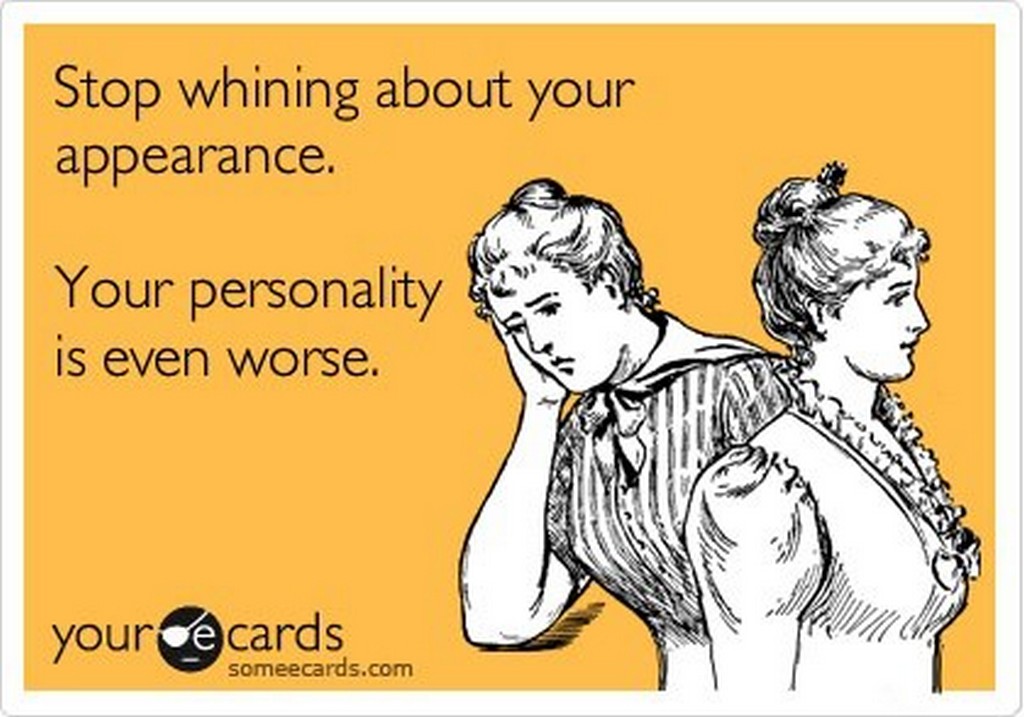
How to detect addiction in a relationship
People in dependent relationships experience constant anxiety even where there is none. They depend on the mood of the other person and his condition. Very often, the husband is not guilty of depending on the woman. A woman simply strives to be a “good” mother and wife.
To be a good mother or wife does not mean to stop being yourself, to be a woman, and not just a mother, to be a specialist in a certain field, and not just a hostess. The questions to ask yourself are what I really want to do today. Often dependent people do not have an answer to this question.
How to stop being addicted to relationships
People who depend on relationships often, being alone, do not know what to do, because their own desires and strength to change something have long been gone. As a rule, a woman wants to change something, but is afraid of the new environment and chooses the already familiar "quagmire" in which she has already adapted.
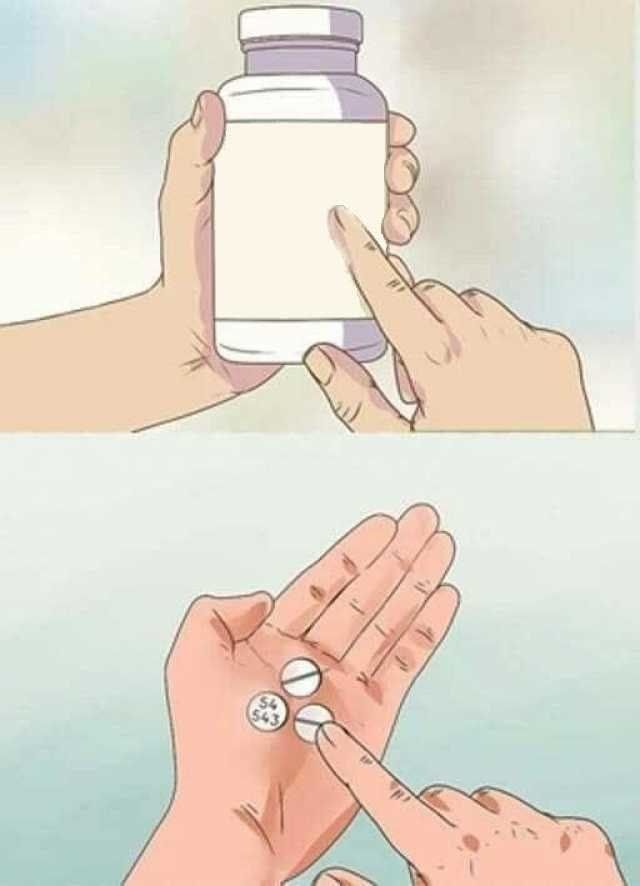
 This affects not only people with low self-esteem, but also narcissists, whose sense of self-worth is easy to manipulate.
This affects not only people with low self-esteem, but also narcissists, whose sense of self-worth is easy to manipulate. 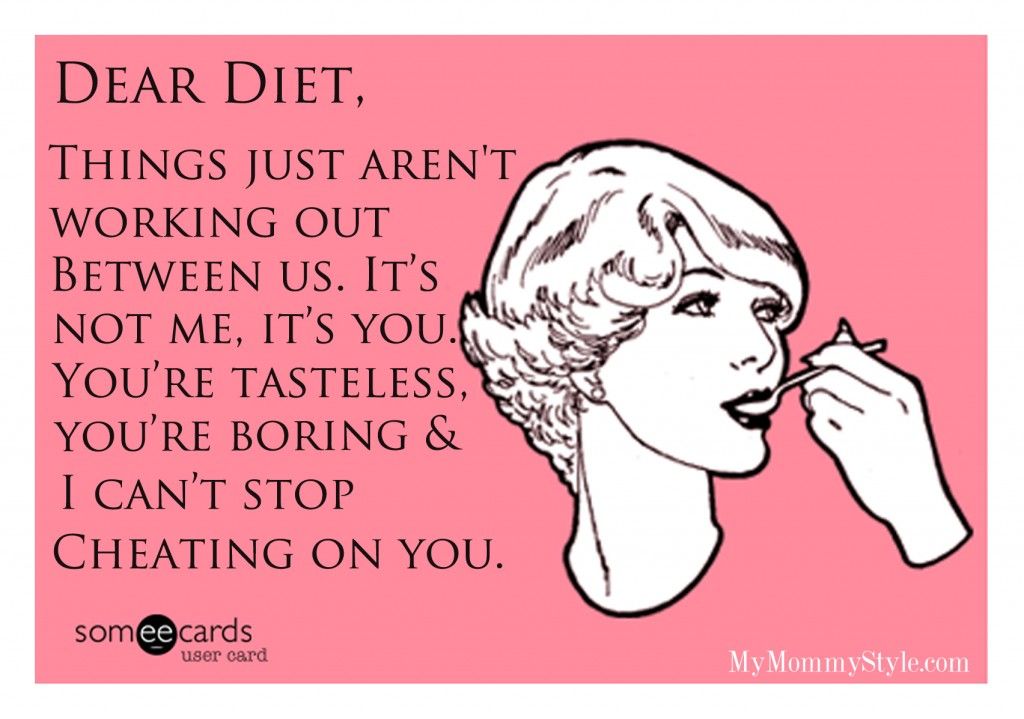 To get out of them, you must first return yourself - remember about your interests, your desires and your capabilities.
To get out of them, you must first return yourself - remember about your interests, your desires and your capabilities. 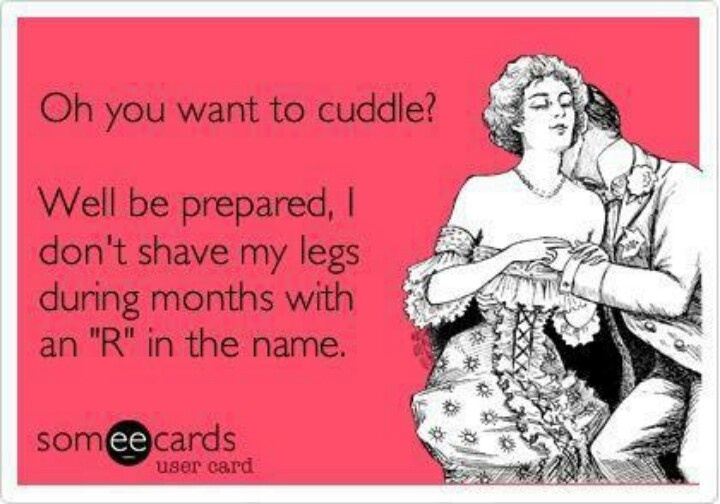 In fact, of course, this is not the case. Asking for help when you can't cope is normal and right. You can start with your inner circle or immediately turn to a psychologist.
In fact, of course, this is not the case. Asking for help when you can't cope is normal and right. You can start with your inner circle or immediately turn to a psychologist. 
